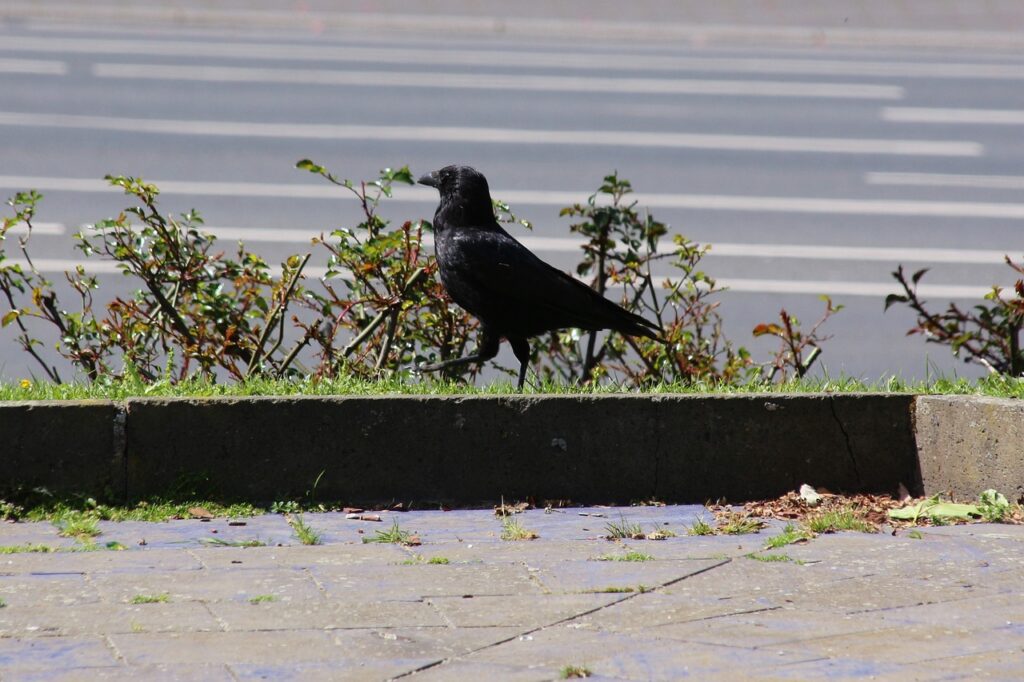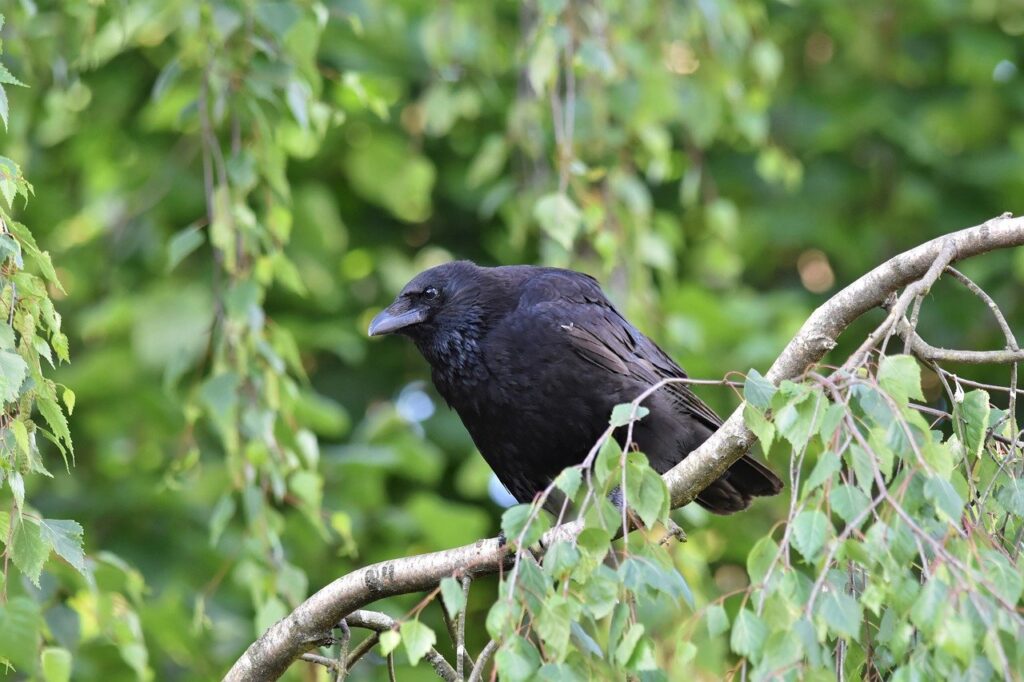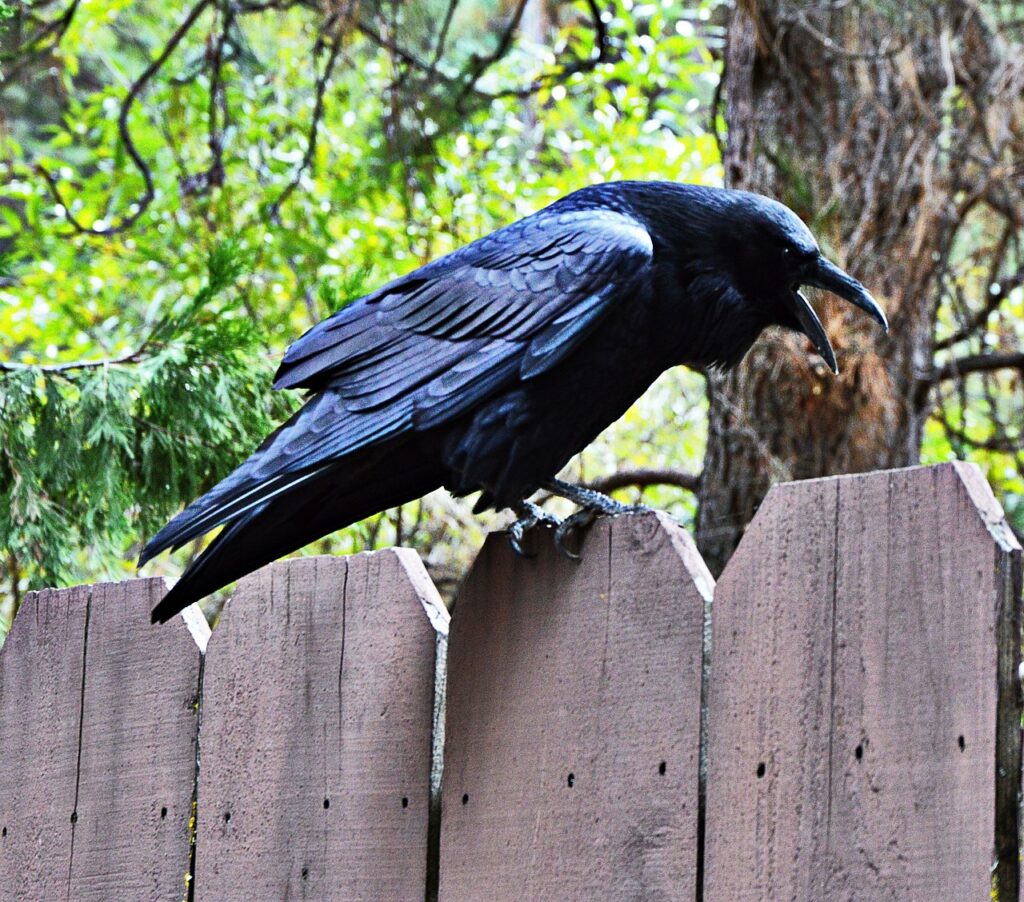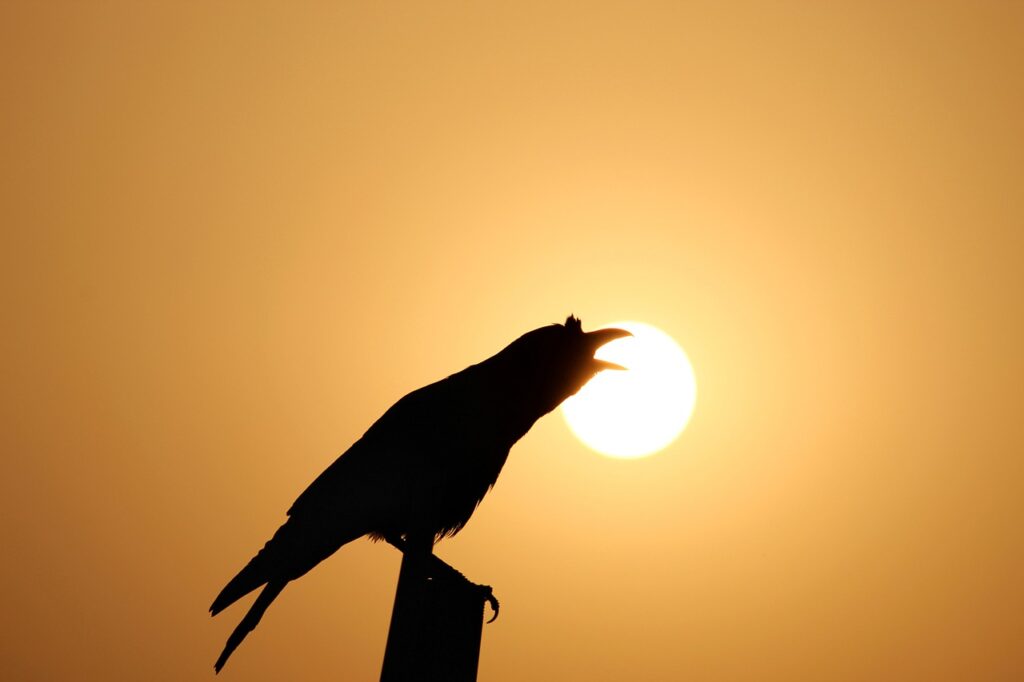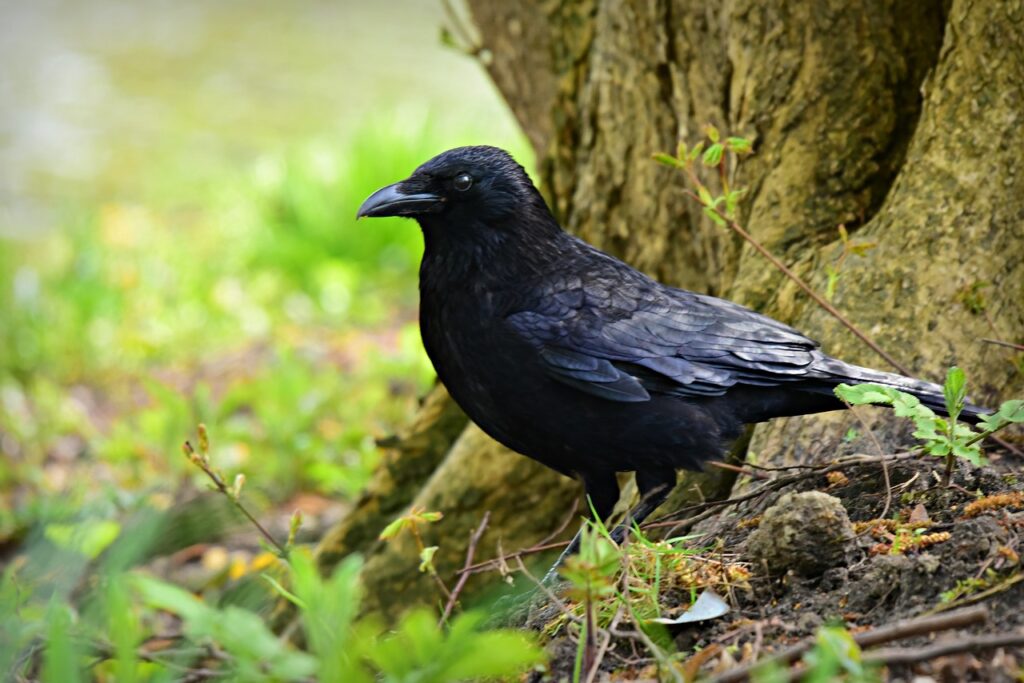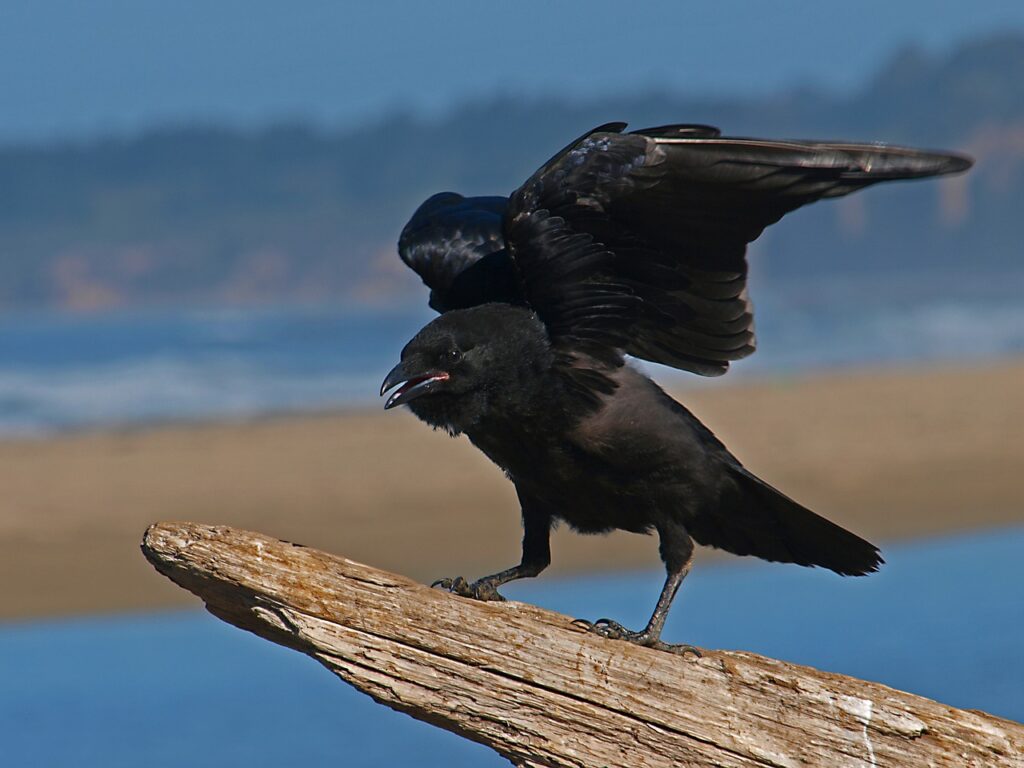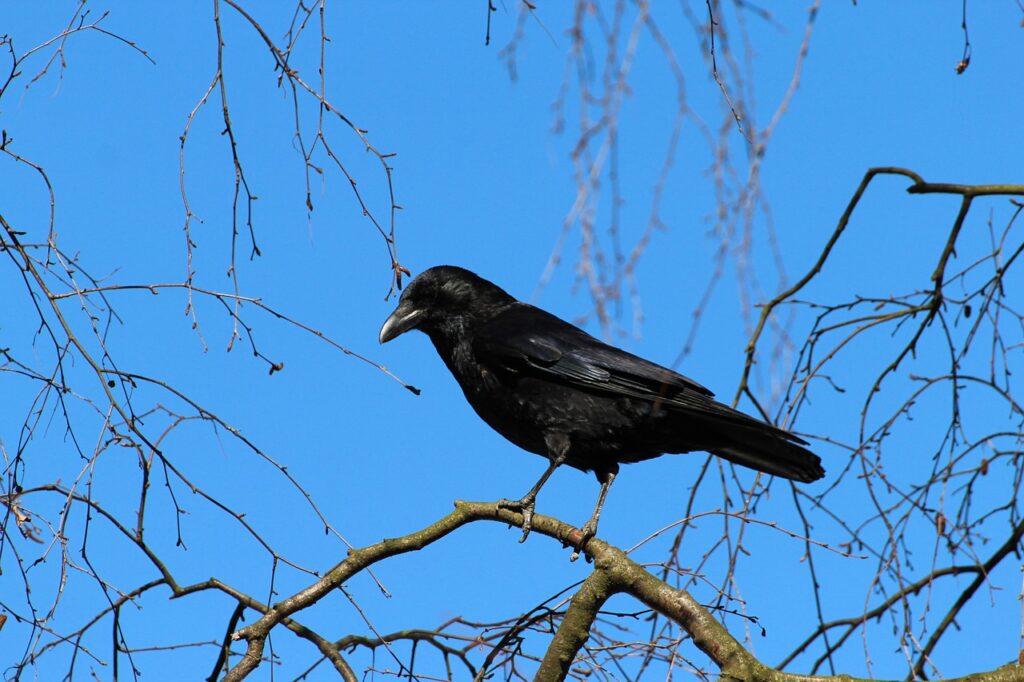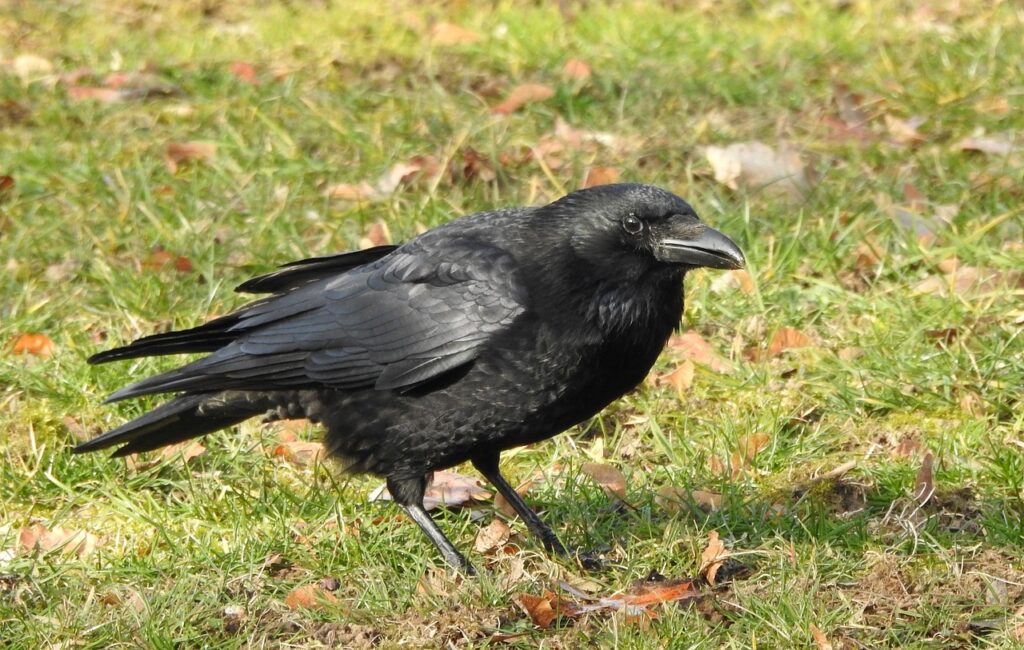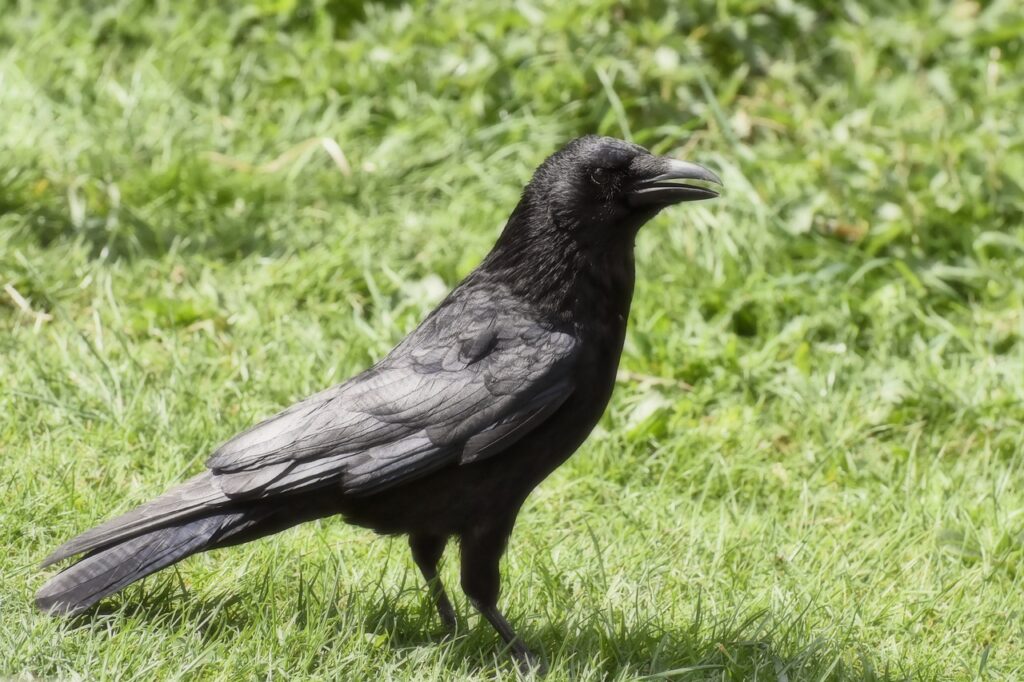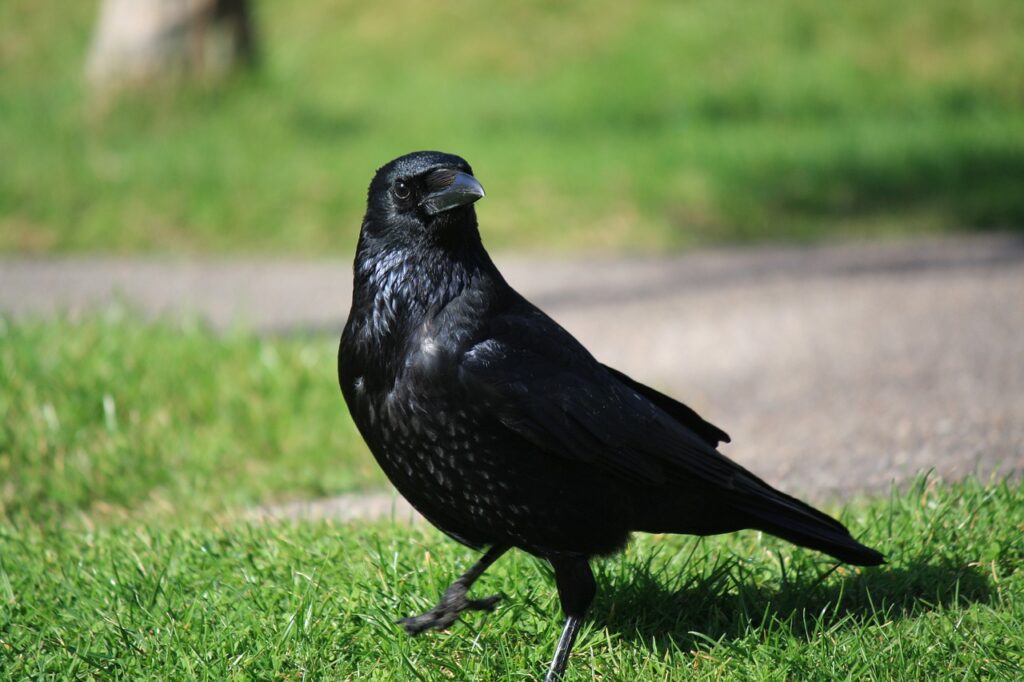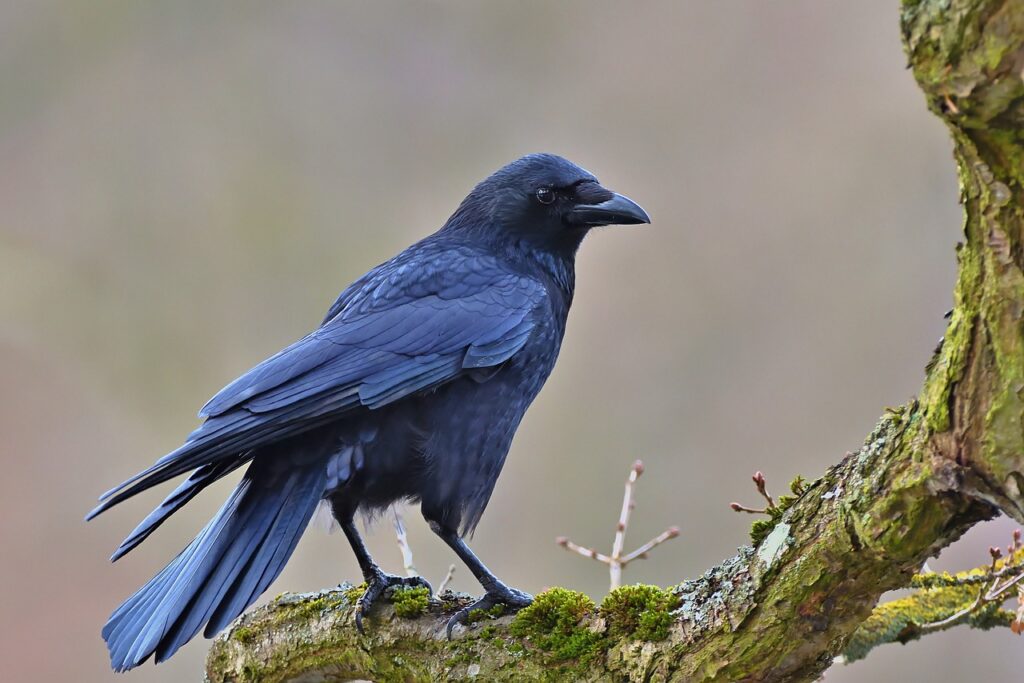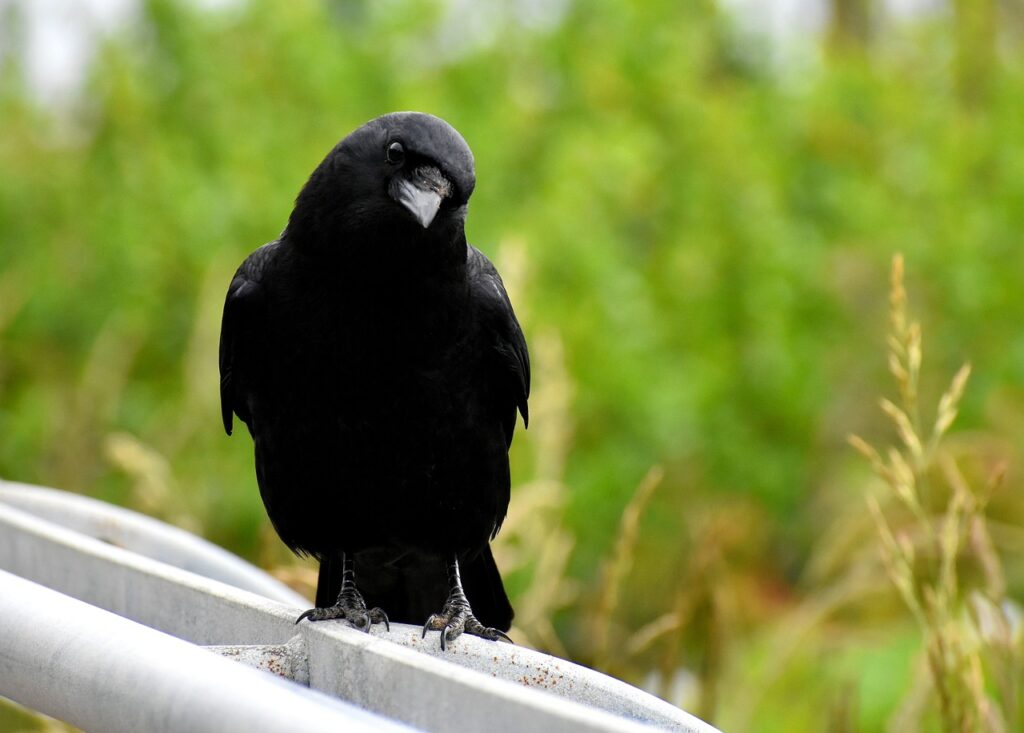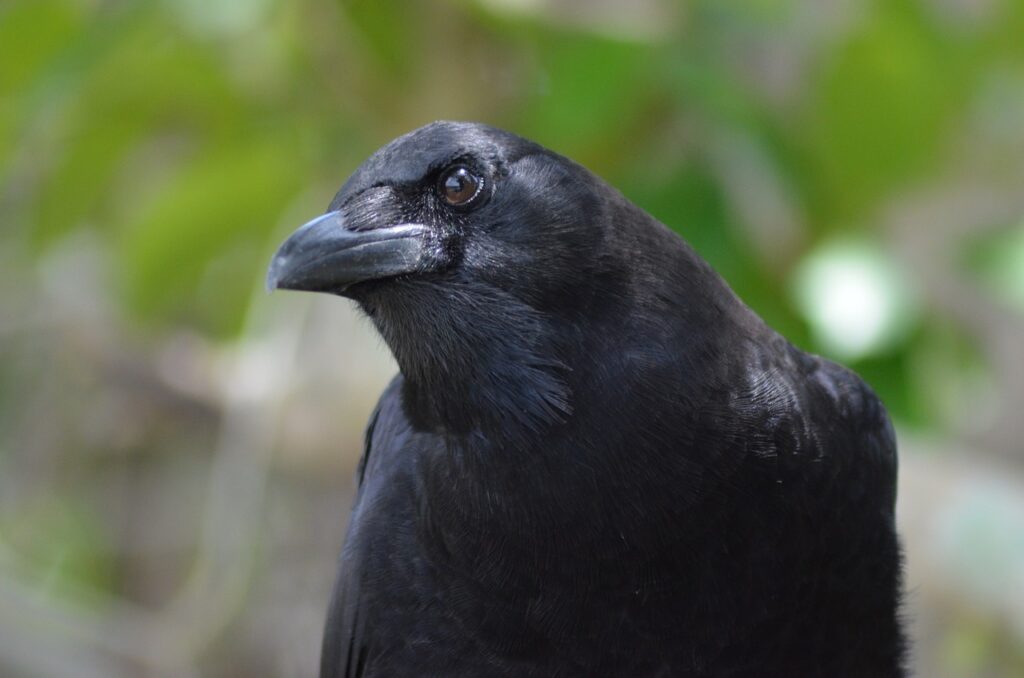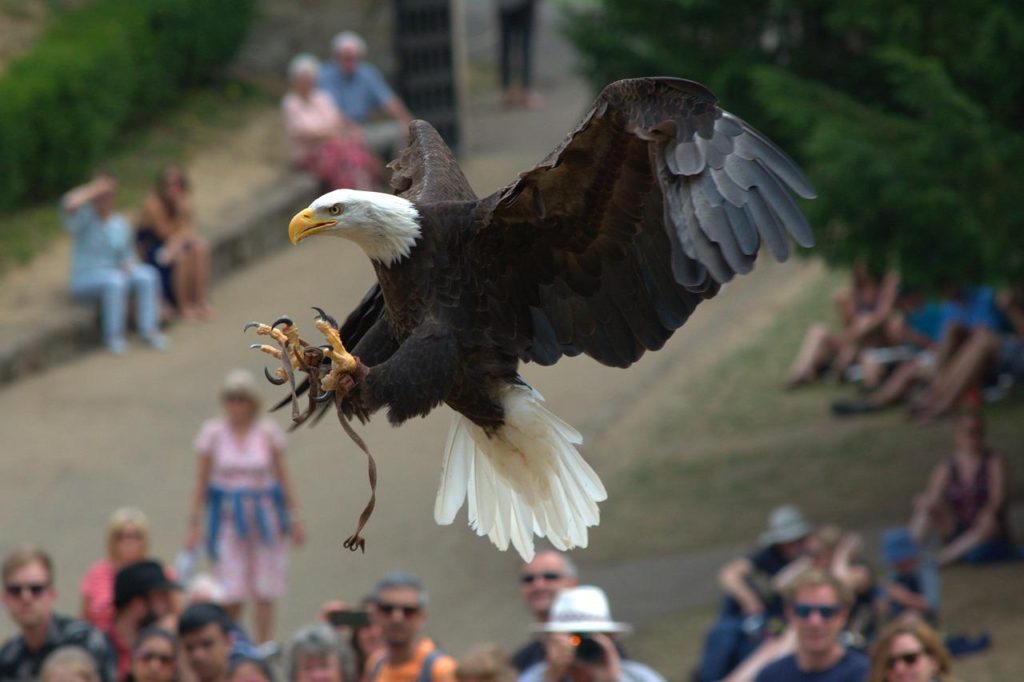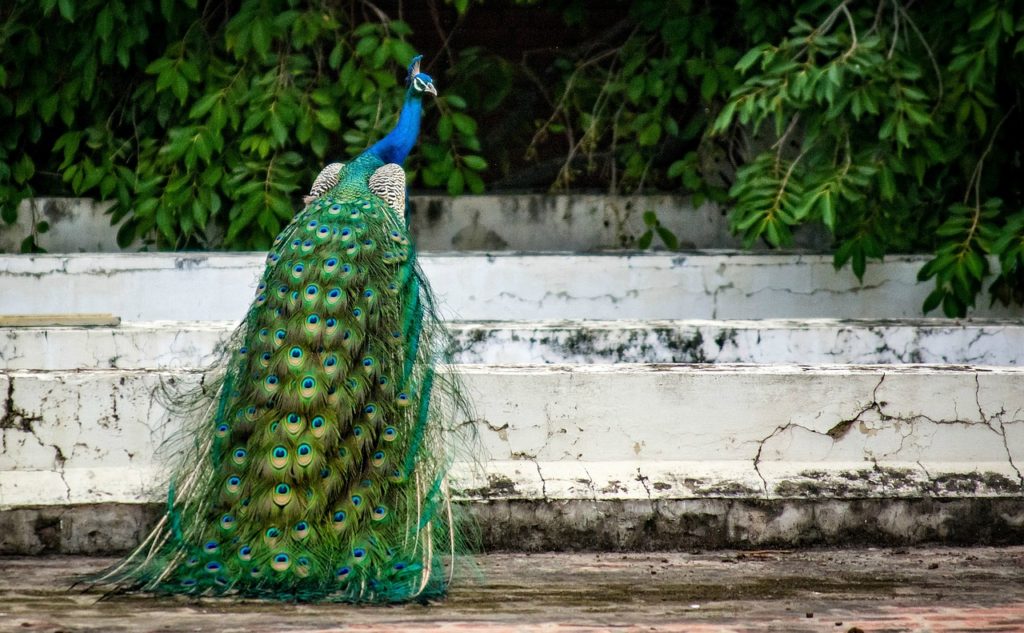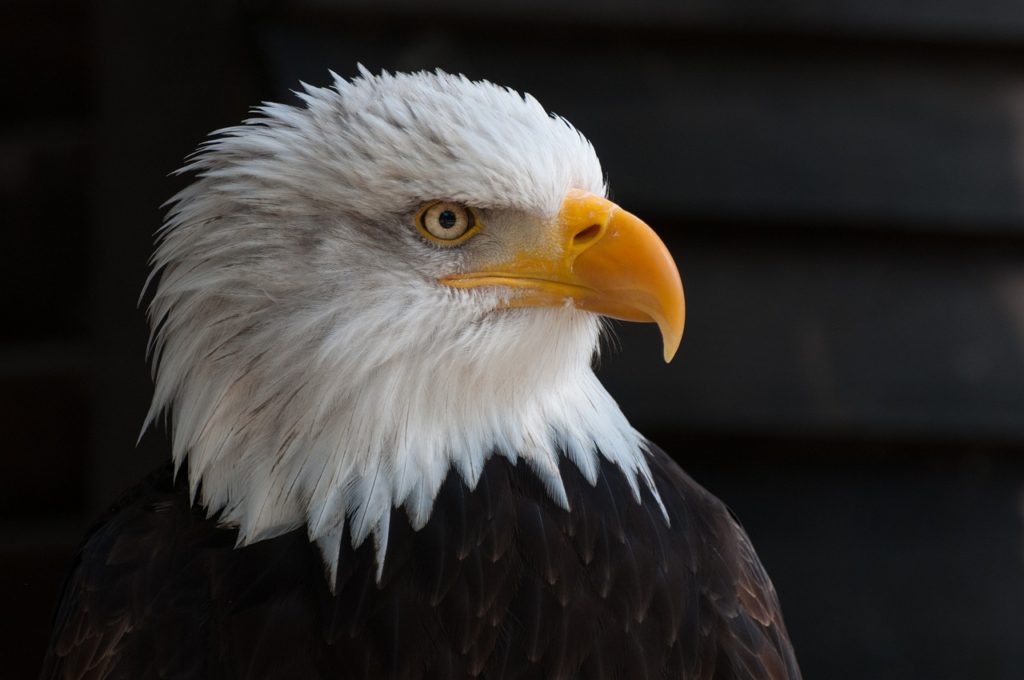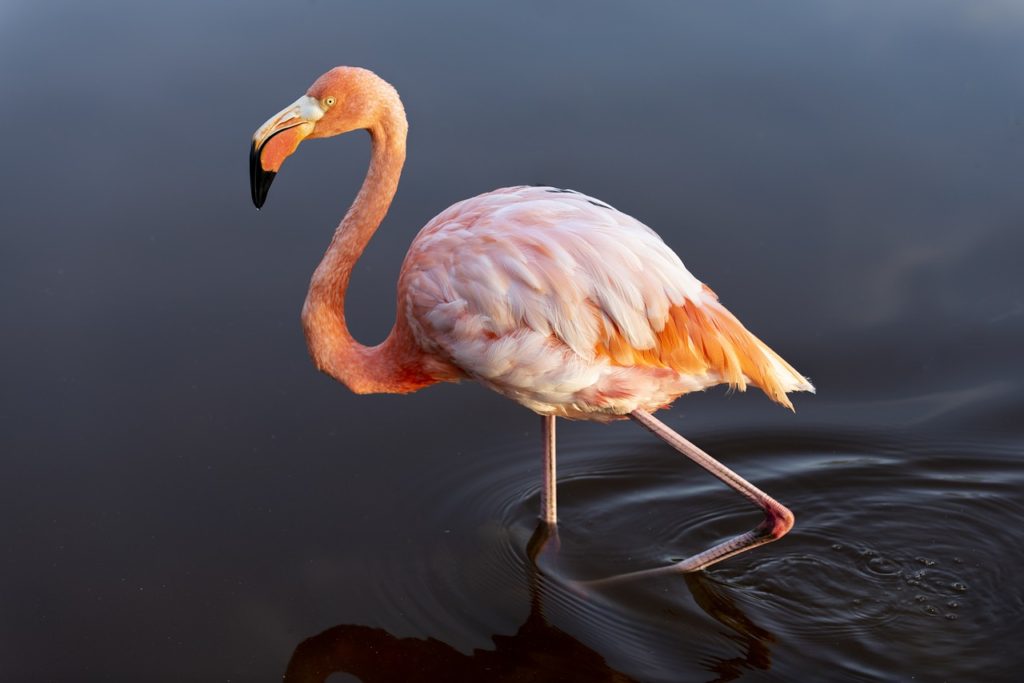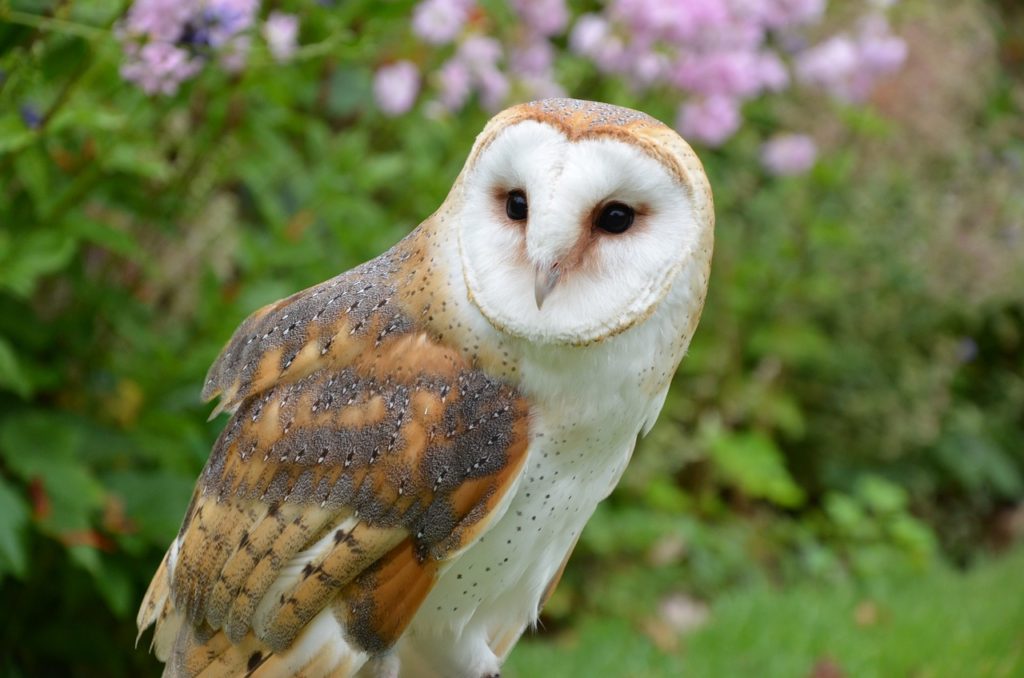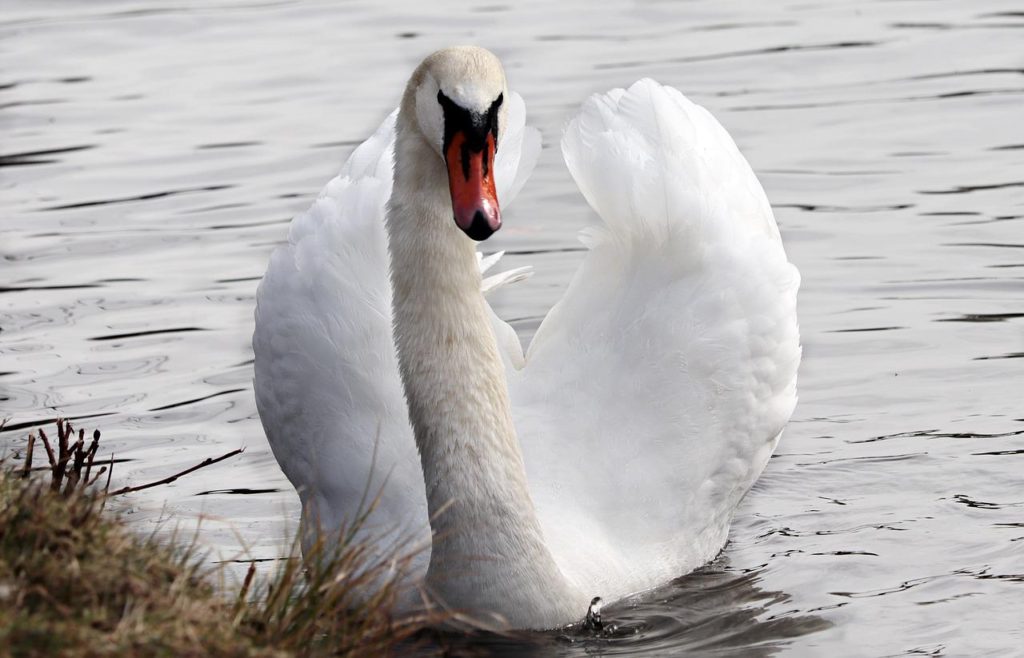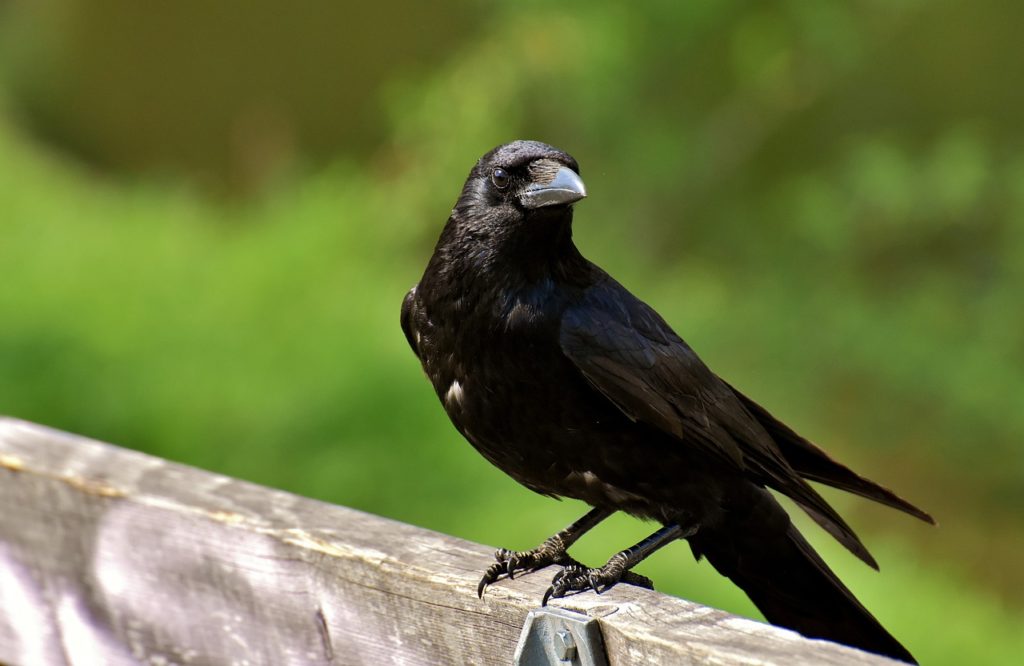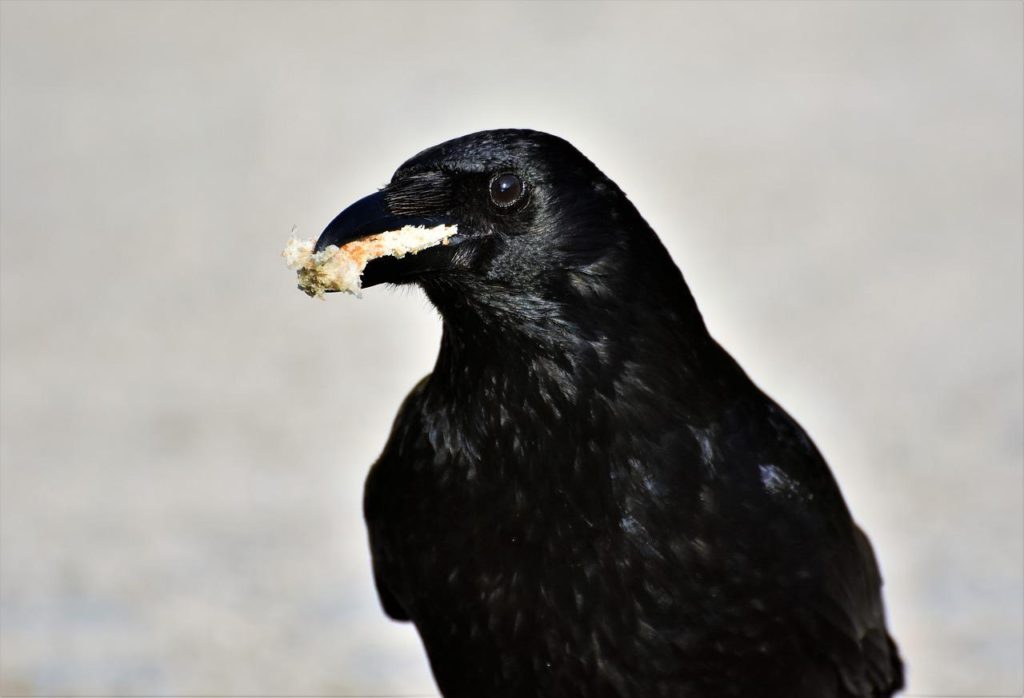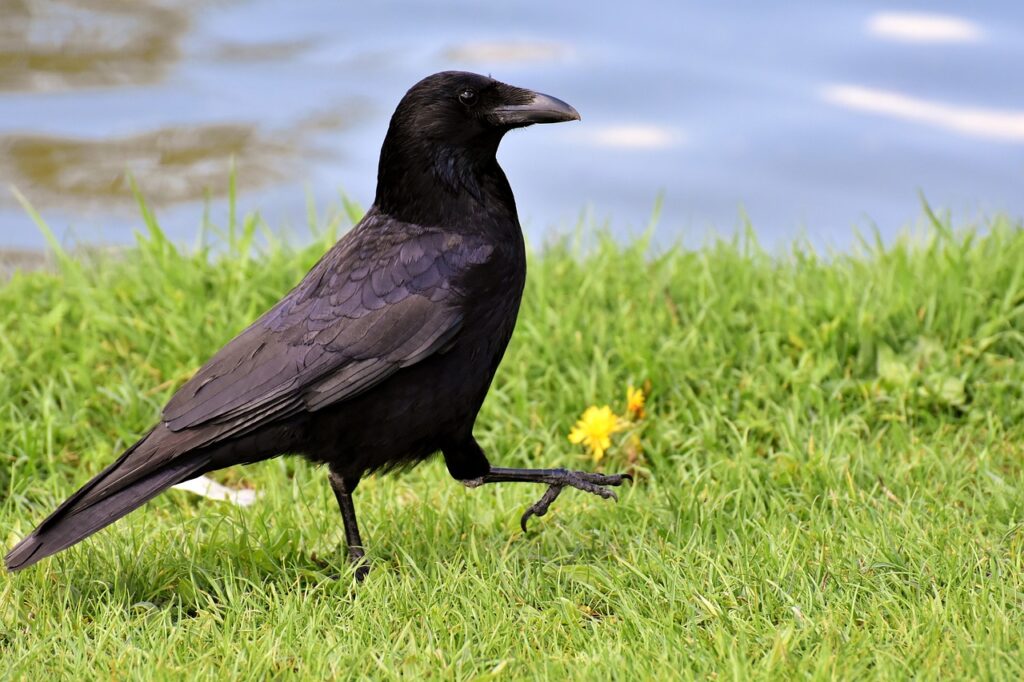
Crows are a common sight in many parts of the world. However, most of us don’t realize that these distinctive jet-black birds face a range of threats even when they are in our own backyards. The following are the main enemies of crows.
Natural Predators of Crows
One of the biggest dangers that crows face are natural predators. These are animals that have evolved to hunt and kill crows as part of their diet. Some of the most common crow predators include:
Hawks, Eagles, and Falcons
Birds of prey like hawks, eagles, and falcons are known for their sharp talons and keen eyesight making them formidable crow hunters. The peregrine falcon in particular is an expert bird hunter that often strikes and kills its prey in flight.
Owls
Nocturnal hunters like owls are an especially big threat to crows. Crows may be caught off guard by these silent nighttime hunters while roosting at night. And it is believed that one of the reasons crows roost in large numbers during the fall and winter months is for added protection against predation from owls.
Ravens
Ravens are often mistaken for crows. While they are closely related and look similar, ravens are bigger and stronger than their smaller crow cousins. They are one of the crows’ natural enemies as they raid crow nests, eating their eggs and young. Crows themselves are nest predators and are in turn a threat to the nests of ravens (and other birds of course).
Coyotes and Foxes
While it’s not a common occurrence every once in a while a coyote or fox may get lucky and surprise a crow on the ground. Or come across an injured crow. However, crows are incredibly wary birds and have the advantage of flight.
Snakes
Snakes are mainly a threat to a crow’s young. Tree-climbing snakes like rat snakes and black racers will climb up to nests eating any eggs or nestlings they find.
Human Threats to Crows
Humans are one of the most dangerous of all crow enemies since we are both a threat directly and indirectly. Some of the most common human threats are:
Hunting and Trapping
In many places, crows are considered to be a pest bird species. Hunting and trapping are used as a direct way to control their numbers and lessen any negative impact they may have on crops or the surrounding environment.
Poisoning
Crows are notorious for eating just about anything. And this can lead to them being poisoned. For example, if they consume foods that have been exposed to pesticides like crops or insects. Crows may also eat dead animals such as rodents that have been poisoned themselves which can be fatal. Contaminated water, pollution, and pesticides sprayed in their habitat can also be deadly for crows.
Habitat Destruction
Like almost all other animal species on the planet, crows can be negatively impacted by habitat loss. This makes it not only harder for them to find food but also a territory where they can mate and safely raise their young.
Vehicle Collisions
One of the most overlooked enemies of crows are actually vehicles. Crows are smart birds and they will regularly fly along roads looking for easy meals such as roadkill and trash. However, when they are occupied by eating or there is limited visibility they may not have time to take off in time to avoid oncoming vehicles and are killed or seriously injured.
How Have Crows Adapted To These Threats?
Crows are well-known for being extremely adaptable. And despite all of these threats, they have evolved a range of behaviors to help them deal with their enemies and stay alive as long as possible. For example:
Group Defense
Crows live in family groups. And when there is a potential threat the entire group may attack. They are known for mobbing, divebombing, calling loudly, and even physically attacking to drive their enemies away. Crows can be particularly aggressive during the nesting season and may even attack humans.
Nest Placement
To make things harder for predators, crows are selective about where they build their nests. They like locations that are high up and difficult for predators to reach. Utility poles and tree tops are particular favorites.
Food Caching
Crows hide their extra food for times when resources are scarce. However, they don’t put it all in one spot. That would make it easier for them to be ambushed once a predator realized where their cache was. And also for competitors to steal it all at once. So instead they hide their food in a range of different locations.
Vocalizations and Alarm Calls
As anyone who has experienced crows knows, they can be very loud. These birds have a range of calls they use to communicate information with each other including danger. In fact, they will place sentinels high up above them to keep watch while the rest of the group is feeding on the ground. And when any enemies of crows are spotted the sentinel can sound the alarm and the feeding crows can quickly escape.
Start Shopping for Birding Supplies!
Crow Symbolism: Everything You Need To Know
Ever wondered why the crow has captured the imagination of so many cultures throughout history? Let's embark on a fascinating journey through the world of crow symbolism, unraveling its mysteries and discovering its significance across various cultures, religions, and...
Creepy Facts About Crows
Crows are highly intelligent birds that have thrived alongside us humans. However, while they are fascinating creatures, at the same time, there are many things about them that many people find quite unsettling. That being said here as some of the most creepy facts...
Why Are Crows So Loud?
As anyone who has heard their loud "caws," can tell you, crows are very noisy birds. In fact, they are considered one of the loudest of all bird species. But why are crows so loud? Read on to find out. The Importance Of Vocalizations Crows use vocalizations to pass on...
Do Crows Remember Faces?
Crows are known for their intelligence. But do crows remember faces? You bet they do! Here's what you'll want to know. Crow Intelligence Crows are brilliant birds. In fact, their level of intelligence is often compared to that of primates. They are so smart that they...
Why Are Crows Black?
American crows are birds with all-black plumage. But why are crows black? Well, there are several reasons. Read on to find out. Bird Color Basics Birds are some of the most colorful creatures on the planet. And they come in an amazing range of colors from white to...
Are All Crows Black?
When it comes to crows, most people are familiar with the image of a sleek-looking solid black bird. But are all crows black? No, they aren't. Here's what you'll want to know. The American Crow Is Not All Crows The American crow is found throughout most of North...
How Long Do Crows Live?
How long do crows live? That's one of the many questions people ask about these familiar all-black birds. Here's what you'll want to know about the lifespan of crows and what affects it. How Long Do Crows Live In The Wild? In the wild American crows have a lifespan of...
Predators of Crows
In many places, crows are such a common sight that it can be easy to forget that they actually have many predators. And being "on the menu," for a range of other animals is actually why these birds are so wary. That being said, here is everything you'll want to know...
Are Crows Territorial?
Are crows territorial? The answer is yes. However, just how territorial they are can depend on several factors. Here’s what you’ll need to know. Territoriality In Birds Territoriality is the behavioral trait of defending and maintaining a specific area territory...
What Eats Crows?
Crows are large and highly intelligent birds that eat a wide variety of foods including many other animals. So, what eats crows? Here are the most common crow predators and what you’ll want to know about them. Birds Of Prey The birds of prey are a group of predatory...
Are Crows Friendly?
Crows are commonly seen, and heard, in close proximity to us in our towns and cities. But are crows friendly? The answer may surprise you. Crows Are Highly Social Birds Crows are social birds that live in family groups. And they are well known for forming close bonds...
Do Crows Mate For Life?
Do crows mate for life? Yes, they do. And this behavior is highly advantageous to them. Here's what you'll want to know. How Do Crows Attract A Mate? Crows are social birds; most of the year, they live in small family groups. During the breeding season, however,...
Birds With Talons
All birds have claws. However, only a few types have the scary-looking and dagger-sharp claws called, “talons”. So here are the birds with talons and what you’ll want to know about each of them. What Are Talons? Talons are the claws of a group of predatory birds known...
Birds With Tails
Just like birds themselves, birds’ tails come in a wide range of shapes and sizes. And some tails of course are more interesting and remarkable than others. The following are birds with tails that never fail to impress! Long-Tailed Tit The long-tailed tit, also known...
Birds With White Heads
There's no doubt about it, birds with white heads really stand out. From small to large they are quite a unique bunch. So here are some of the most fascinating white-headed birds and what you'll want to know about them White-Headed Vulture The white-headed vulture is...
Birds That Look Like Flamingos
Flamingos are wading birds with long necks and legs. These social birds live in groups and have strongly hooked downward-facing beaks which they use to feed on shrimp and other small water creatures. And they are famous for their stunning pink color. With such a...
How To Attract Owls To Your Yard
Owls are nocturnal birds of prey that can be extremely helpful when it comes to controlling rodent populations in a natural way. That is of course if you can attract them to your property by creating an owl-friendly habitat. So keep reading to find out how to attract...
Why Would A Swan Be Alone?
It's widely known that swans are incredibly social and romantic creatures, so it can be disconcerting when you encounter a solitary swan. However, there are several reasons why this might be. So why would a swan be alone? Here's what you'll want to know. But first,...
How To Attract Crows To Your Yard
Crows aren’t always pests as many people believe. In fact, these super smart birds can actually help to rid your property of many common backyard and garden pests themselves. So here’s your step-by-step guide on how to attract crows to your yard! Step 1. Create A...
What Do Crows Eat?
With roughly 40 different species, crows are a common sight in most places around the world. And while most of us are familiar with their appearance and harsh vocalizations, their diet is not as obvious. So what do crows eat? Here's what you'll want to know. What Do...
